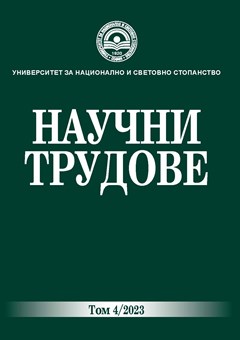Efficiency of Government Expenditure on Health and Education in Bulgaria
Автори: Konstantin Kolev, Maya Tsoklinova
Резюме
The Covid-19 pandemic has faced countries worldwide with major challenges in securing additional funds for health and education services. Due to this the goal of present paper is to estimate the efficiency of government expenditure on health and education. This is done through application of Data Envelopment Analysis (DEA) for the period 2005 – 2021. The research hypothesis, which is defended is: the expenditure are not used quite efficiently and during the studied period with their amount higher final results in health and education should be received. In this regard should be pointed out that the final results connected with health (the number of beds in hospital facilities and the number of doctors in medical and health facilities per 10,000 people of the population) and education (the number of students in public general schools and the number of students enrolled in educational qualification degree “professional bachelor”, “bachelor” and “master” in public higher schools) should be achieved respectively with 5.78% less expenditure on health of the General Government Sector and with 13.35% less expenditure on education of the General Government Sector than the incurred expenditure during the analysed period.
JEL: H51, H52, C67

